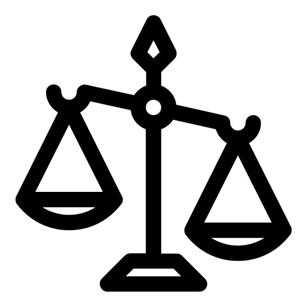Injustice is a pervasive and complex concept that transcends geographical, cultural, and temporal boundaries, manifesting in various forms that deeply impact individuals and communities.
At its core, injustice refers to the violation of principles of fairness, equity, and moral rightness within social, political, economic, and legal contexts. The intricate nature of injustice makes it challenging to encapsulate in a singular definition, as its manifestations evolve and adapt to the dynamics of society.
One fundamental aspect of injustice lies in the unequal distribution of resources and opportunities.
Economic injustice, for instance, is evident when certain groups or individuals face systemic barriers preventing them from accessing basic needs, education, or employment opportunities. This form of inequality perpetuates cycles of poverty and limits the upward mobility of marginalised communities, creating a stark contrast between the privileged and the disenfranchised.
Social injustice encompasses discrimination based on race, gender, ethnicity, sexual orientation, or other defining characteristics. Prejudice and bias embedded within societal structures lead to unequal treatment, limiting the rights and opportunities available to certain groups. Discriminatory practices can manifest in subtle ways, such as microaggressions, or in more overt forms like systemic racism, reinforcing power imbalances and perpetuating stereotypes that fuel inequality.
Within the legal system, injustice emerges when the application of laws and regulations favours particular groups while disadvantaging others. Legal injustices can range from biased law enforcement practices to discriminatory sentencing, ultimately eroding trust in the judicial system. In some instances, unjust laws themselves may exist, further marginalising specific communities and impeding progress toward a more equitable society.
Political injustice often stems from the abuse of power, corruption, and the suppression of dissent. When leaders prioritize personal gain over the welfare of their constituents, democratic principles are undermined, leading to a lack of representation and accountability. Authoritarian regimes, censorship, and voter suppression are among the myriad ways political injustice can manifest, stifling the voices of those who seek a fair and inclusive governance structure.
Injustice is not solely confined to a macroscopic level; it permeates interpersonal relationships as well.
In everyday life, individuals may experience injustice through bullying, harassment, or exclusion based on personal characteristics. The repercussions of such injustices extend beyond immediate harm, contributing to the perpetuation of harmful social norms and attitudes.
Efforts to combat injustice require a comprehensive approach that addresses its multifaceted nature. Education and awareness play crucial roles in dismantling stereotypes and challenging ingrained biases.
Legal and policy reforms are essential to ensure the fair treatment of all individuals, regardless of their background. Grassroots movements and advocacy are powerful tools for challenging systemic injustices, fostering a collective commitment to building a more equitable and inclusive society.
In conclusion, injustice is a complex and pervasive phenomenon that manifests in various forms across societal structures. It encompasses economic, social, legal, and political dimensions, as well as interpersonal relationships.
Understanding the intricacies of injustice is essential for fostering meaningful change, as it empowers individuals and communities to challenge systemic inequalities and work towards a more just and equitable world.
We recommend you should always seek formal legal advice if required, from a qualified and reputable lawyer (solicitor or barrister).
We have a number of links to Free Legal Resources and Legal Organisations on our Free Legal Advice , Legal Aid and Pro Bono pages.
Read the reviews of Gavin Howe Barrister
“He is awful, underhanded and should not be practising law!”
Latest Articles
- What is a Paralegal ?A paralegal is a legal professional who performs tasks that require knowledge of legal concepts but does not hold the… Read more: What is a Paralegal ?
- What is a Judgment ?A judgment, also known as a judicial decision or court ruling, is the final decision made by a court of… Read more: What is a Judgment ?
- What is an Adverse Inference ?Adverse inference is a legal principle that plays a significant role in various areas of law, including criminal, civil, and family law. It arises… Read more: What is an Adverse Inference ?
- BarristersA barrister is anyone who has been Called to the Bar in England and Wales. For a barrister to offer… Read more: Barristers




